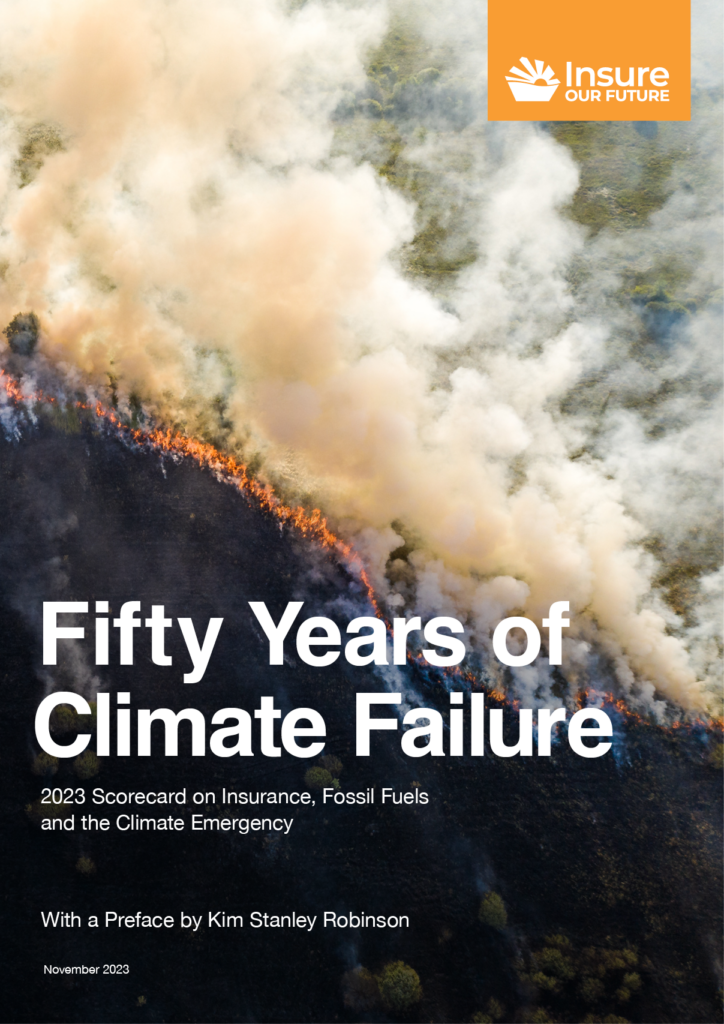Waterkeeper Alliance Calls on Insurance Industry to Support 1.5°C Climate Targets
By: Waterkeeper Alliance

Today, the Insure Our Future campaign released its seventh annual scorecard on insurance, fossil fuels, and the climate emergency. The report was co-published by 22 climate advocacy organizations including Waterkeeper Alliance. The new report, Fifty Years of Climate Failure, reveals that many insurers are continuing to underwrite projects to increase oil and gas production while also declining to insure homeowners in climate-vulnerable areas that are at greatest risk. It also confirms the key role insurance companies have in turning the tide against increased fossil fuel production and runaway climate change toward a just transition and a sustainable future.
The last five years have been a study in climate extremes, including a growing frequency and severity of floods, hurricanes, wildfires, droughts, and other climate-related events. According to the report, insurance payouts for natural catastrophes have soared to an average $110 billion a year since 2017—more than twice the average over the previous five years—while fossil fuel insurance earned the industry around $21.25 billion in 2022. To protect profit and limit payout, insurers are continuing to fuel the climate emergency and some are now declining to insure homeowners in markets at greatest risk from natural disasters.
In response, Marc Yaggi, the CEO of Waterkeeper Alliance, issued the following statement:
“Rather than accept their key role in helping society secure a pathway to a liveable future, many insurance companies shamelessly capitalize on climate inaction by financially supporting fossil fuel expansion projects or denying climate risk coverage to people in vulnerable areas. These undeniable acts of callous negligence compound the misery of those already bearing the brunt of climate change and underscore the perilous prioritization of profit over people, waterways, and the planet. The time for empty promises and half-hearted commitments has long passed. These insurance giants must not only divest from fossil fuels to help limit global warming to 1.5°C, but also provide equitable climate risk coverage to those in harm’s way.”